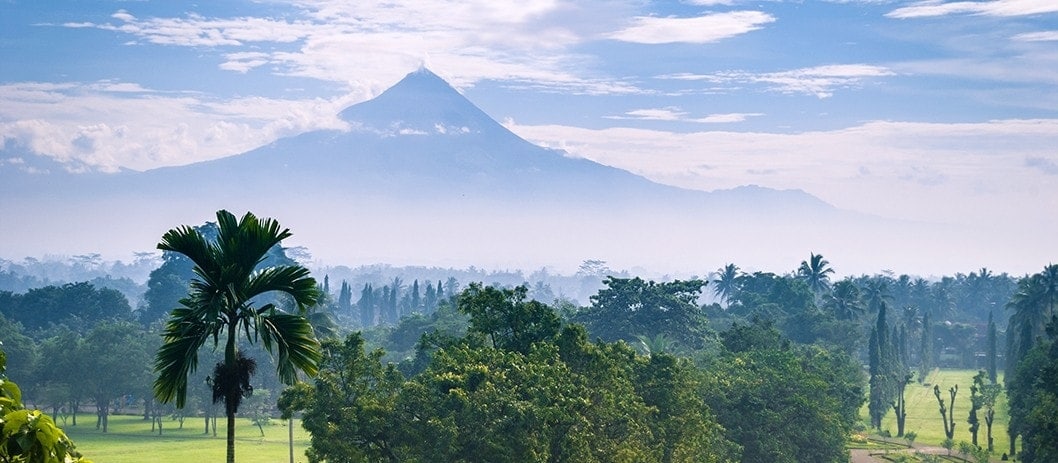
ULTIMATE IN DIVERSITY
The Republic of Indonesia is the largest archipelago in the world comprising 13,466 large and small tropical islands fringed with white sandy beaches, many still uninhabited and a number even still unnamed. Straddling the equator, situated between the continents of Asia and Australia and between the Pacific and the Indian Oceans, it is as wide as the United States from San Francisco to New York, equaling the distance between London and Moscow. Indonesia has a total population of more than 215 million people from more than 200 ethnic groups. The national language is Bahasa Indonesia.
Among the most well known islands are Sumatra, Java, Bali, Kalimantan (formerly Borneo), Sulawesi (formerly Celebes), the Maluku Islands (or better known as Moluccas, the original Spice Islands) and Papua. Then, there is Bali “the world's best island resort” with its enchanting culture, beaches, dynamic dances and music. But Indonesia still has many unexplored islands with grand mountain views, green rainforests to trek through, rolling waves to surf and deep blue pristine seas to dive in where one can swim with dugongs, dolphins and large mantarays.
Because of her location, and geology, Indonesia is blessed with the most diverse landscape, from fertile ricelands on Java and Bali to the luxuriant rainforests of Sumatra, Kalimantan and Sulawesi, to the savannah grasslands of the Nusatenggara islands to snow-capped peaks of West Papua.
Her wildlife ranges from the prehistoric giant Komodo lizard to the Orang Utan and the Java rhino, to the Sulawesi anoa dwarf buffalos, to birds with exquisite plumage like the cockatoo and the bird of paradise. This is also the habitat of the Rafflesia the world’s largest flower, wild orchids, an amazing variety of spices, and aromatic hardwood and a large variety of fruit trees. Underwater, scientists have found in North Sulawesi the prehistoric coelacanth fish, a “living fossil” fish, predating the dinosaurs living some 400 million years ago, while whales migrate yearly through these waters from the South Pole. Here are hundreds of species of colourful coral and tropical fish to admire.
Culturally, Indonesia fascinates with her rich diversity of ancient temples, music, ranging from the traditional to modern pop, dances, rituals and ways of life, changing from island to island, from region to region. Yet everywhere the visitor feels welcomed with that warm, gracious innate friendliness of the Indonesian people that is not easily forgotten.
Facilities-wise Indonesia’s hotels are second to none. In fact, many of our luxurious and unique hotels have constantly been listed as some of the best in the world, located on white sandy beaches, overlooking green river valleys, or situated in the heart of busy capital Jakarta. While Indonesia’s cities like Jakarta, Bandung, Surabaya, or Makassar are a hive of activities for business and leisure and a paradise for shoppers, offering upscale boutiques selling top brand names, to local goods at road-side stalls. Here gourmets can treat themselves to the many regions’ delectable spicy cuisine or dine sumptuously at international restaurants. And for sheer relaxation, Indonesia Spas are second to none to reinvigorate both body and mind.
Convention centers are equipped with state-of-the-art facilities, as many top international conferences and exhibitions are held in Jakarta, Bali to Manado, ranging from the Global Climate Change Conference in Bali to the World Ocean Conference in Manado , to trade and investment exhibitions and tourism trade shows in many provincial capital cities.
Jakarta, Bali, Medan, Padang, Bandung, Solo, Yogyakarta, Surabaya, Makassar are connected by direct international flights, and many regular and low cost carriers fly passengers to Indonesia’s towns or remote locations.
